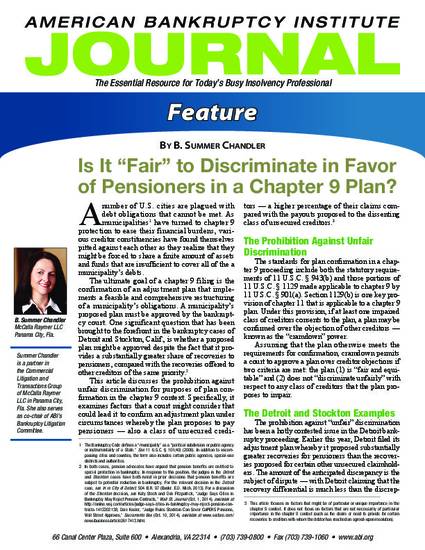
- Bankruptcy Law and
- Law
“A number of U.S. cities are plagued with debt obligations that cannot be met. As municipalities1 have turned to chapter 9 protection to ease their financial burdens, various creditor constituencies have found themselves pitted against each other as they realize that they might be forced to share a finite amount of assets and funds that are insufficient to cover all of the a municipality’s debts. The ultimate goal of a chapter 9 filing is the confirmation of an adjustment plan that implements a feasible and comprehensive restructuring of a municipality’s obligations. A municipality’s proposed plan must be approved by the bankruptcy court. One significant question that has been brought to the forefront in the bankruptcy cases of Detroit and Stockton, Calif., is whether a proposed plan might be approved despite the fact that it provides a substantially greater share of recoveries to pensioners, compared with the recoveries offered to other creditors of the same priority.2 This article discusses the prohibition against unfair discrimination for purposes of plan confirmation in the chapter 9 context. Specifically, it examines factors that a court might consider that could lead it to confirm an adjustment plan under circumstances whereby the plan proposes to pay pensioners — also a class of unsecured creditors — a higher percentage of their claims compared with the payouts proposed to the dissenting class of unsecured creditors.3” [excerpt]
Available at: http://works.bepress.com/summer-chandler/3/
